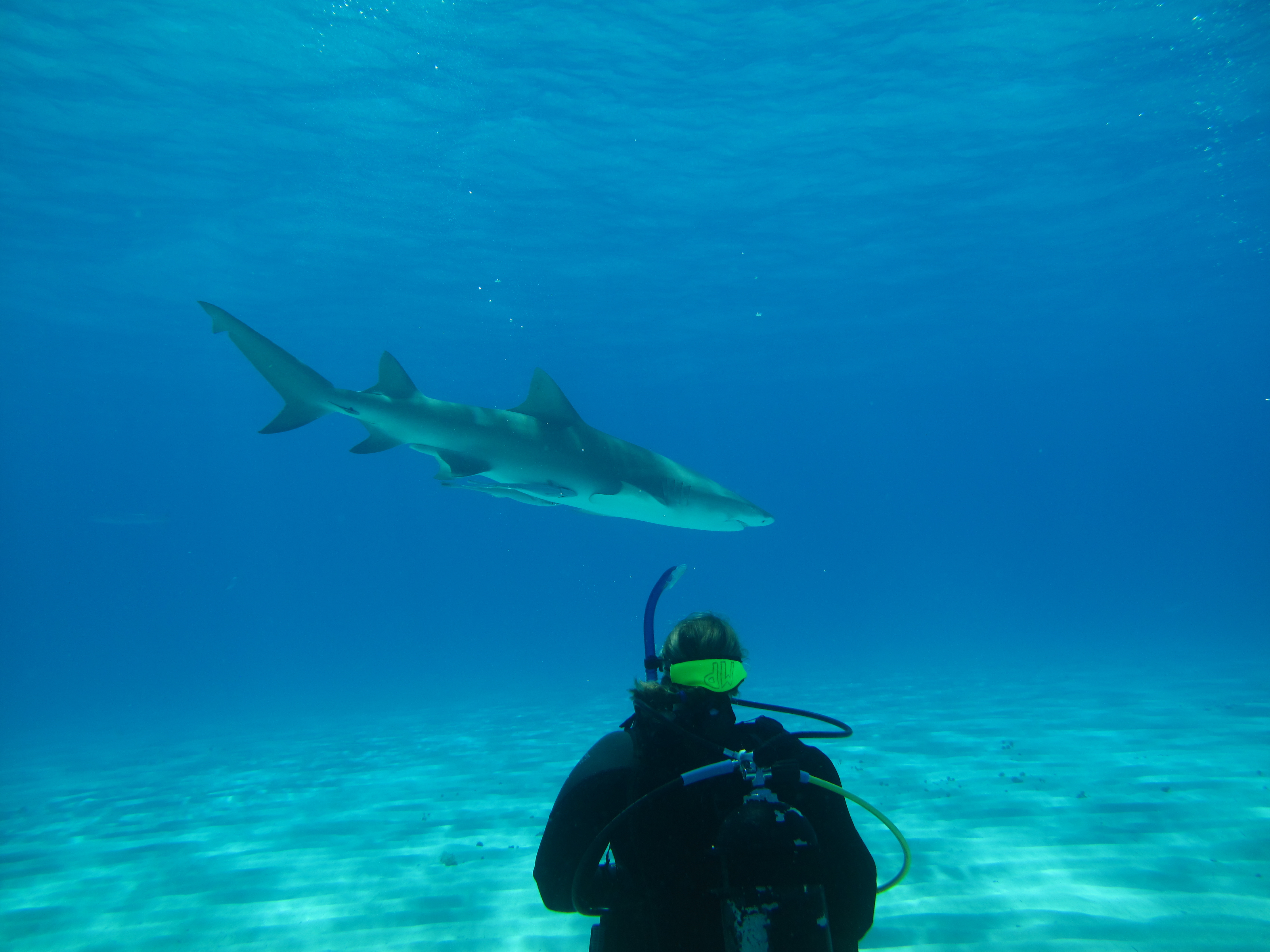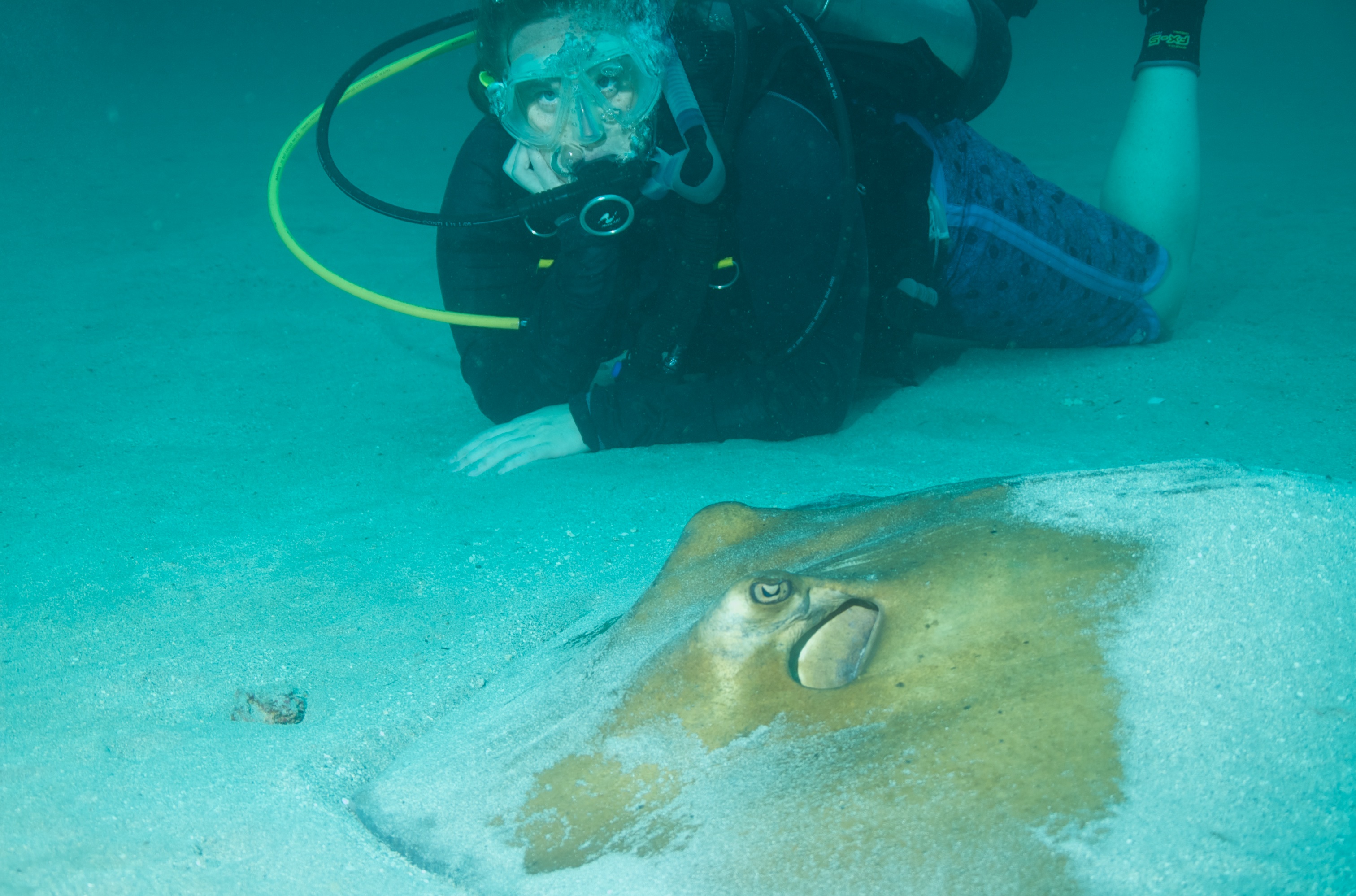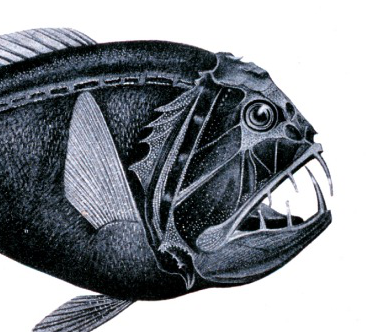Sharkbites Saturday is thrilled to feature a guest post by Dr. Marianne E. Porter, Assistant Professor at Florida Atlantic University, and PI of the Florida Atlantic Biomechanics Lab.
Hello to all the Sharkbites Saturday readers. I hope you have been having a fantastic week. It is the fall semester and graduate program applications are due soon, depending on the program. As an Assistant Professor, I have been getting a lot of emails from students interested in working with me and my own undergraduate researchers have also been asking for graduate school advice. I figured this would be a great opportunity to share my story and some tips I learned along my winding career path. So here is the story of how I became an accidental shark researcher.
Really, I have to start this story as a very small kid… in Arizona. I decided very early in elementary school that I was going to be a scientist. I did not know what flavor of scientist, but I really wanted to be one the researchers you see in National Geographic traveling globe to learn about stuff. That was my vision of a scientist at that point. I was on the swim team and loved all things water related. I decided that I should be some sort of ocean scientist because of my deep love of water.

Fast forward to the end of high school. I was like every other senior trying to figure out where I wanted to go to college and pick a major. At the age of 18, I really wanted to major in zoology, but I was thinking it would be more practical to be business major. My dad was a business major and that was the only career path I had really known. Thankfully, my dad told me that I should choose a major that I love. He said that a career is a really long time and large percentage of life, so I should pick something I will be happy doing. (Tip 1: Do what you love!) I headed off to Northern Arizona University to major in zoology. I loved my classes and was doing well. I wanted to go to graduate school after I finished to continue on my journey to become a scientist. However, I had no idea how to get into graduate school or become a scientist.
My big break into science came during my third year ecology course, I went to talk to my professor during his office hours. (Tip 2: Always visit your professors in their office hours.) I was really enjoying the class and had some questions about the lecture. He noted that I was getting an A, and he asked if I would be interested in doing undergraduate research with one of the graduate students in his lab. This was what I was missing! I had no idea that undergraduate research was even an option. (Tip 3: Do undergraduate research.) I took advantage of this opportunity and started my first research experience in the pinyon juniper woodlands of northern Arizona. I was studying the plant – herbivore interactions of a stem and cone boring moth and the pinyon pine trees. (Tip 4: Take advantage of opportunities even if it is not perfectly aligned with your end goal.) The moth preferentially ate cones and was acting as an ecosystem engineer by turning trees that had both sexes to trees that were only male. This work was amazing. I was able to hike a lot and learn about the actual process of doing science. As I gained experience working in this system, I was able to develop my own questions and started my own project with two other undergrad researchers. We were able to lead our own project, which eventually became my first big publication in a peer-reviewed journal. (Tip 5: Present your work at conferences and try to publish your results.)

Work in the pinyon juniper woodland took me through the end of my undergraduate career. I was looking for graduate programs elsewhere, but I was offered a great opportunity (funded master’s work) to continue working in plant ecology in Grand Canyon National Park (See Tip 4). I was able to study the near-shore native and invasive vegetation along the Colorado River. These plants provide important near-shore habitat for native, endangered fishes. I was able to continue developing my skills as a researcher through this project. I presented at conferences and was able to work on my own research project from start to finish (See Tip 5). While attending a mandatory department seminar, I heard my future PhD advisor speak. His research on biomechanics and biological materials was fascinating and it took my back to my childhood interest in the ocean. I had zero experience in marine systems, but I had almost four years of research experiences at that point. I had fantastic mentors as an undergraduate and master’s student who were able to guide me through these experiences, which made me a strong candidate for continued graduate research. (Tip 6: Find good mentors!)
Off I headed to University of California, Irvine, to start my PhD in biomechanics studying sharks (See Tip 4). I was not a shark biologist or biomechanist, and I had a serious case of impostor syndrome. It took about two years for me to feel like I had any business being in my PhD program. After those two years, I had finished my course work, collected some great data that would become a chapter in my dissertation, and had presented at large conferences successfully (See Tip 6). Graduate work is filled with ups, downs, and flaming hoops like written and oral exams. I was able to get through it all with the support of my family, peer group, and mentors. (Tip 7: Build your ‘science’ family and support system.) By the time I was ready to defend my dissertation, most of my chapters were published and I had a great post-doctoral research lined up.
There you have it, my story of a kid a from Arizona’s academic path to shark researcher and important tips I learned along the way. Since I finished my PhD, I did post-doctoral research building robots at Vassar College (Poughkeepsie, NY), taught classes at University of Washington’s Friday Harbor Labs, and got an awesome faculty position at Florida Atlantic University. I started the Florida Atlantic Biomechanics Lab (FAB Lab) in 2014. Our research focuses on biomechanics and biomaterials from the ocean. Currently, I have three PhD students, two master’s students, and many student researchers, including a few in high school.
To learn more about the research done in the Biomechanics Lab at FAU, please visit https://porterbiomechanics.wordpress.com/research/.
I’m an Undergraduate student at University of Rhode Island majoring in Ocean Engineering and Marine Biology. I’m interested in the intersection between technology, biology and ocean exploration, as well as the application of such research to solve human problems.
I am also an advocate for shark conservation. Sharks have the unfortunate reputation of being man-eating monsters because of their portrayal in the media, and through human fear they have become some of the most vulnerable species on earth. My goal is to spread information about the importance of sharks to the balance of the ocean ecosystem, which directly affects the balance of the rest of the world. It’s a priority to learn to coexist, and protect our ocean and the future of our planet.

